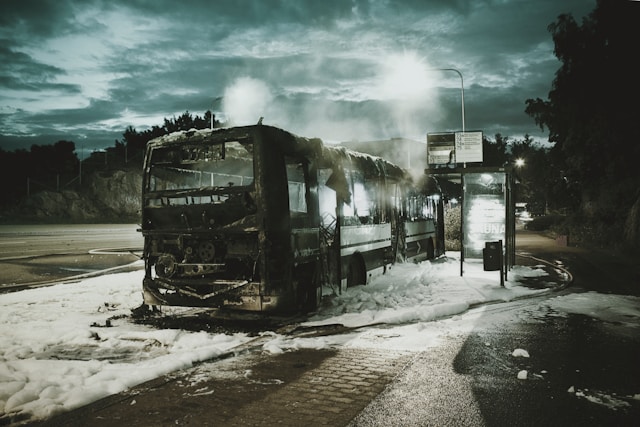Truck accidents often result in severe injuries and significant property damage, raising complex legal questions regarding liability. Understanding negligence in these cases is critical for victims seeking justice. This blog explores how negligence factors into truck accidents, the different types of negligence, and the implications for legal liability.
Understanding Negligence in Truck Accidents
Negligence is the failure to exercise the care that a reasonably prudent person would in similar circumstances. In truck accidents, various parties may exhibit negligence. An 18 wheeler accident lawyer can help identify whether the truck driver, trucking company, or another party failed to meet their duty of care. Factors such as driver fatigue, improper vehicle maintenance, and inadequate training can lead to accidents, emphasizing the importance of accountability in the trucking industry.
Negligence is not only about the actions taken but also about what should have been done. For instance, if a truck driver is aware of adverse weather conditions but chooses to drive recklessly, this could be seen as negligent behavior. Moreover, trucking companies have a responsibility to implement safety measures, including regular training and maintenance schedules, to mitigate risks.
Types of Negligence in Trucking
Different forms of negligence may contribute to truck accidents. Some common categories include:
- Driver Negligence: This involves behaviors such as distracted driving, speeding, and driving under the influence. Truck drivers must adhere to strict regulations and operate their vehicles responsibly. The high stakes of operating a large vehicle demand heightened attention and caution.
- Employer Negligence: Trucking companies are responsible for hiring qualified drivers and ensuring they receive adequate training. Failure to conduct thorough background checks or provide proper training can lead to negligent hiring claims. Companies should also monitor their drivers’ performance and address any unsafe behaviors promptly.
- Maintenance Negligence: Regular maintenance is essential for safety. Neglecting necessary repairs or inspections can result in vehicle malfunctions, leading to accidents. Maintenance logs and inspection reports are crucial for demonstrating compliance and ensuring that vehicles are roadworthy.
- Regulatory Negligence: The trucking industry is heavily regulated. Non-compliance with federal and state regulations, such as hours of service rules, can contribute to accidents. When companies ignore these regulations, they risk legal repercussions and endanger public safety.
Understanding these categories helps determine who may be liable in the event of a truck accident. Each type of negligence highlights the multifaceted nature of liability in these cases.
Proving Negligence in Truck Accident Cases
To establish negligence in a truck accident case, the following elements must be proven:
- Duty of Care: The party in question must have a duty to exercise reasonable care. For example, a truck driver must operate their vehicle safely. This duty extends to other drivers, pedestrians, and anyone else on the road.
- Breach of Duty: Evidence must show that the duty of care was breached. This can include reckless driving or failure to maintain the vehicle. Gathering evidence such as traffic camera footage or accident reconstruction reports can support claims of negligence.
- Causation: The breach of duty must directly cause the accident and resulting injuries. It must be shown that the negligence led to the incident. Establishing a clear connection between the negligent act and the accident is crucial for a successful claim.
- Damages: Finally, the plaintiff must demonstrate that they suffered actual damages as a result of the accident, such as medical bills, lost wages, or pain and suffering. Documenting medical records and expenses is essential for quantifying damages.
Collecting evidence, such as accident reports, eyewitness testimony, and expert analysis, is crucial in building a strong case. An experienced attorney can assist in gathering and presenting this evidence effectively.
Liability of Trucking Companies
Trucking companies can be held liable for their employees’ negligent actions under the doctrine of vicarious liability. This means that if a driver is acting within the scope of their employment when the accident occurs, the company may be responsible for damages. Companies are also accountable for their own negligence, such as failing to enforce safety protocols or adequately train their drivers.
Trucking companies should have robust safety programs in place, including regular training and evaluations. When they fail to implement these measures, they risk accidents and face legal consequences. Understanding the liability of trucking companies is essential for victims seeking compensation. An experienced attorney can navigate these complexities and help determine the best course of action.
The Role of Insurance in Truck Accidents
Insurance plays a significant role in truck accident cases. Trucking companies are required to maintain specific insurance coverage, which may cover damages caused by their drivers. However, insurance companies often attempt to minimize payouts, leading to disputes over liability and compensation. Victims should be aware of their rights when dealing with insurance companies. Having legal representation can ensure that victims receive fair compensation for their injuries and damages. An accident lawyer can help negotiate with insurance companies and advocate for the victim’s best interests. Legal counsel is invaluable in dealing with the tactics used by insurance companies to reduce their liability.
The Impact of Negligence on Compensation
The degree of negligence can significantly affect the amount of compensation awarded in a truck accident case. Comparative negligence laws may come into play, determining the percentage of fault assigned to each party involved. If the victim is found partially at fault, their compensation may be reduced accordingly. Understanding how negligence affects compensation is vital for victims pursuing legal action. An experienced attorney can provide guidance on how to approach these cases and ensure that victims receive the compensation they deserve. Different jurisdictions have varying rules regarding comparative negligence, so knowing the specifics of the law is important.
Negligence plays a significant role in truck accidents, impacting legal liability and compensation. Understanding the various forms of negligence, the process for proving it, and the implications for trucking companies is essential for victims seeking justice. By working with an experienced attorney, victims can navigate the complexities of truck accident cases and pursue the compensation they deserve for their injuries and losses. Legal expertise is invaluable in holding negligent parties accountable and ensuring that victims receive the justice they seek.


